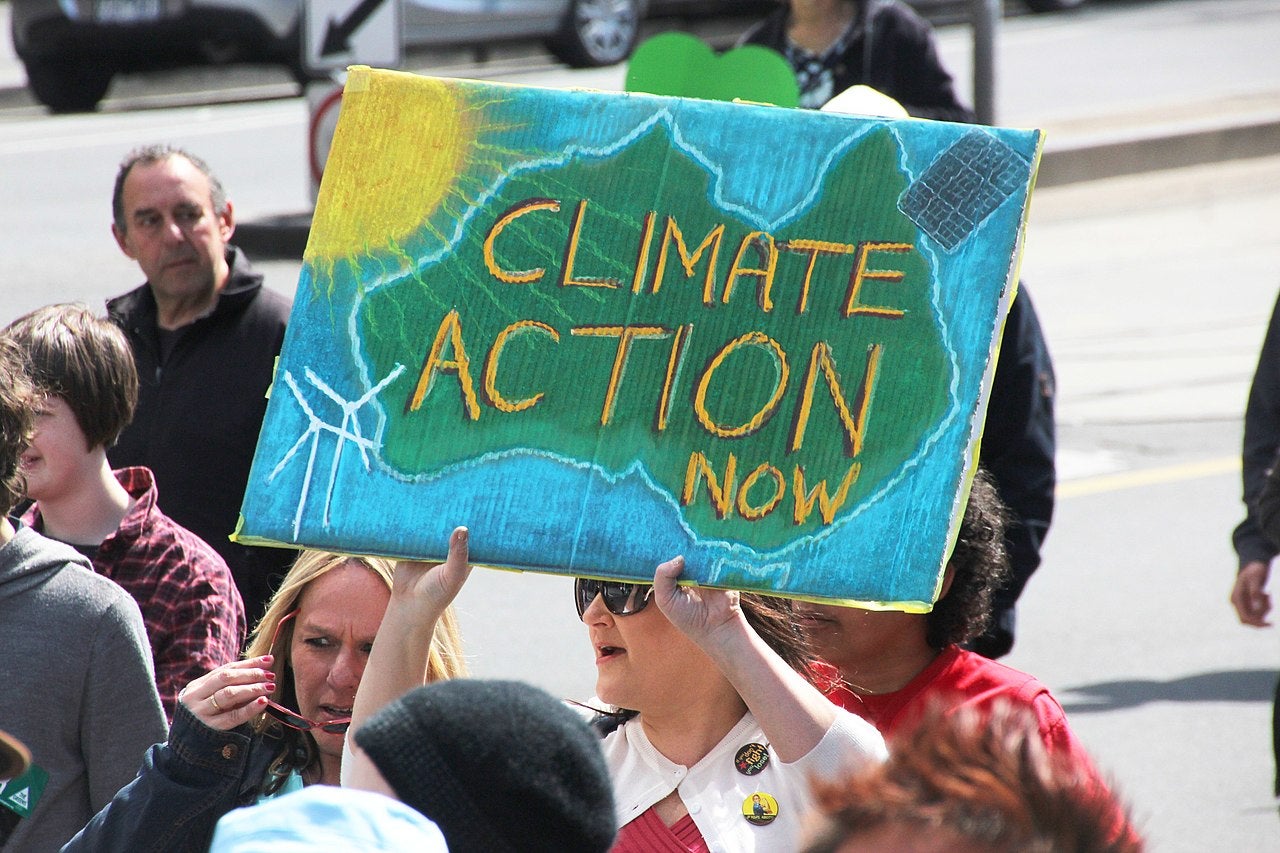Rising Temperatures in the Land Down Under are a Human Rights Issue
A coalition of international and Australian environmental and human rights lawyers are calling for the United Nations Human Rights Council to review Australia’s human rights record in light of the government's inaction on climate change.
Update: On January 20, 2021, all eyes were on Australia when the United Nations Human Rights Council’s Universal Periodic Review Working Group met in Geneva to examine the country’s human rights record. More than 120 countries made recommendations to Australia to strengthen its protection of human rights. A number of these countries recommended that Australia immediately strengthen its action on climate change, demonstrating concern that Australia’s inadequate climate action is contributing to harms to fundamental human rights such as the rights to life and health.
During the UPR, representatives of the Australian government told the U.N. Human Rights Council that Australia is resolutely committed to taking climate action in line with the Paris Agreement. Earthjustice, together with our friends at the Environmental Defenders Office and Environmental Justice Australia, is now urging Australia to turn its words into actions by heeding the recommendations of the UPR to avert human rights violations caused by the catastrophic impacts of climate change.
Read more about the countries’ recommendations to Australia.
Original text published July 20, 2020: Earlier this year, a group of 25 young Australians with Youth Verdict made history with a legal challenge they brought against a proposed coal mine. The lawsuit is Australia’s first to bring human rights arguments to a case about greenhouse gas emissions and climate change. If allowed to operate, the Galilee Basin mine will produce 40 million tons of coal each year for up to 30 years.
John Englart / Flickr
Around the same time, on the same continent, the world watched in horror as massive wildfires destroyed over 48 million acres and killed at least 34 people and an estimated 1.5 billion animals. Sadly, the damage didn’t end there. Researchers estimate that the resulting smoke pollution led to over 400 more deaths and 3,000 hospitalizations for cardiorespiratory problems.
Those events follow a year when First Nations Australians filed their own complaint with the United Nations Human Rights Council. Rising sea levels around the Torres Strait Islands, north of the Australian mainland, are placing residents’ homes, communities, and culture at risk.
The Torres Strait Islanders argue the Australian government violates their human rights by failing to rein in greenhouse gas emissions, which are warming the planet and threatening to engulf the land their communities have stewarded for thousands of years.
First Nations Australians in the Torres Strait Islands are asking for international support for climate solutions to protect their human rights.
350 Australia / YouTube
All of these stories demonstrate an interrelation that governments have ignored for too long: The climate crisis is a human rights crisis. Climate change threatens human rights across the globe and will do so at an increasing pace as temperatures continue to rise. In Australia, climate change is intensifying heatwaves that can lead to heat-related illnesses and increased mortality.
Rising temperatures are also predicted to increase the risk of mosquito-borne diseases. Indigenous Australians are particularly vulnerable to the impacts of climate change because of their dependence on ecosystems that are prone to the effects of climate change, such as floods, droughts, and sea-level rise.
Indeed, climate change poses serious direct and indirect threats to the ability of present and future generations to fully enjoy their rights to life, health, food, water, housing, and culture. This is why Earthjustice has joined Environmental Justice Australia and Environmental Defenders Office to submit recommendations to the United Nations Human Rights Council (“Council”) as part of the Council’s Universal Periodic Review (“UPR”) process.
A meeting of the United Nations Human Rights Council in February 2020 in Geneva.
GovernmentZA / Flickr
The UPR is a process in which the Council evaluates the human rights record of each UN member country every five years. During the UPR, all countries can make recommendations to the country under review to ensure its actions protect human rights. Australia’s UPR will take place in early 2021.
We are urging the Council, through the UPR process, to recommend that Australia reduce its greenhouse gas emissions and phase out its export of fossil fuels to protect the rights of its people and others around the world.
United Nations human rights committees have asserted that governments have an obligation to protect human rights now and into the future by ambitiously reducing their contributions to climate change. However, despite the impact climate change is already having on human rights in Australia, the government’s actions are locking in decades of emissions that threaten both humans and wildlife.
Activists paint “Reef In Danger” on the side of a coal tanker in Gladstone, Australia.
Photo courtesy of Greenpeace
Australia is among the largest exporters of coal and gas in the world, and it plans to expand these exports. The Australian government does not project any significant decline in its emissions to 2030, and it proposes to use carryover credits from its inadequate Kyoto Protocol commitments to meet its emissions reduction targets under the Paris Agreement.
The international community has widely condemned these plans because they undermine global action on climate change by reducing Australia’s overall commitment to eliminating greenhouse gas emissions. This coalition attempt to move Australia toward climate action is just one among a number of related efforts by Australians who are unwilling to accept their government’s failure to protect people and the planet.
Thankfully, they aren’t in this fight alone.
Read our joint submission to Australia’s UPR.
A massive bucket wheel excavator used for maximal land destruction in large-scale mining operations.
pxfuel
The International Program partners with organizations and communities around the world to establish, strengthen, and enforce national and international legal protections for the environment and public health.
Earthjustice Media Relations Team
media@earthjustice.org
